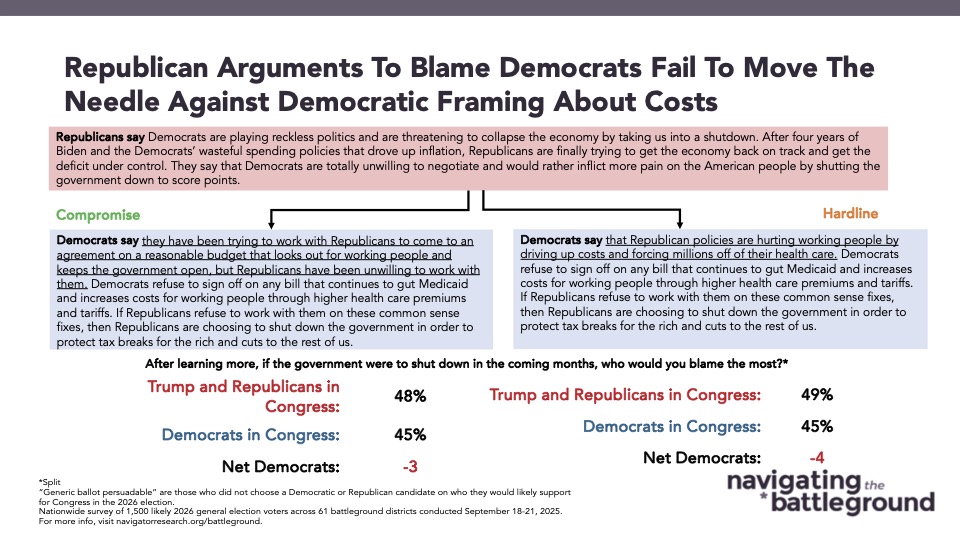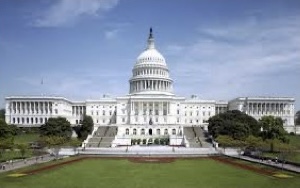Poll: Government Shutdown
This Navigator Research report covers perceptions of a potential government shutdown, rising costs among House battleground constituents.
66 percent of Americans have heard “a lot” or “some” about a potential government shutdown, with 21 percent having heard “a lot.” Only 32 of battleground Americans say they’ve heard “nothing” or “a little” about a potential shutdown.
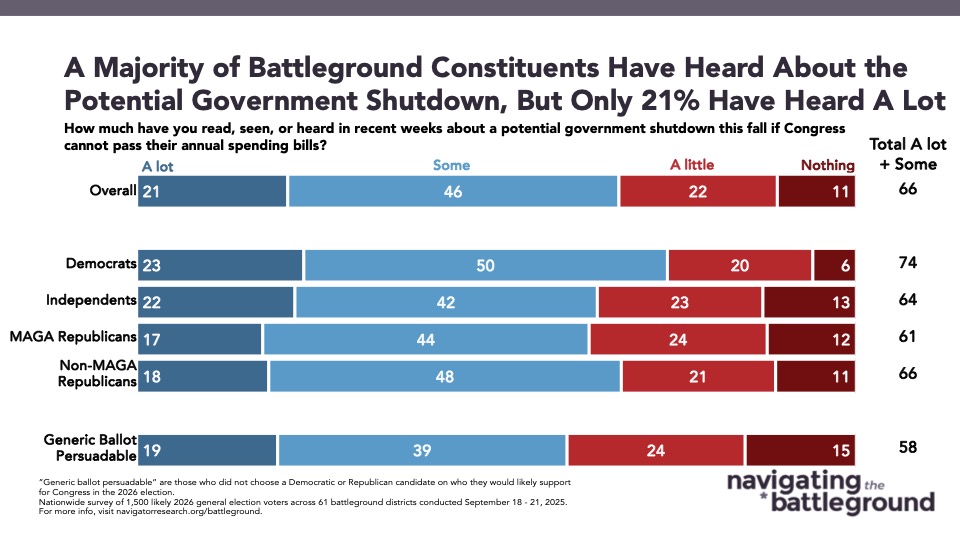
More would blame Republicans than Democrats for a shutdown, but not by much: 44 percent of battleground constituents would blame Democrats in Congress, while 49 percent would blame Trump and Republicans in Congress. This is a departure from our flagship survey, in which a similar share of Americans said they would blame Republicans (45 percent), but there was much more division between blaming Democrats (26 percent) and blaming both sides equally (21 percent).
In the battleground survey, Republicans were far less likely to say “both sides equally,” which likely explains the drop-off. Independents were also much more inclined to blame Republicans rather than both equally: 55 percent would blame Trump and Republicans, 33 percent would blame Democrats, and only 6 percent said they would blame both equally — a significant shift from the 42 percent who blamed both equally in our national survey.
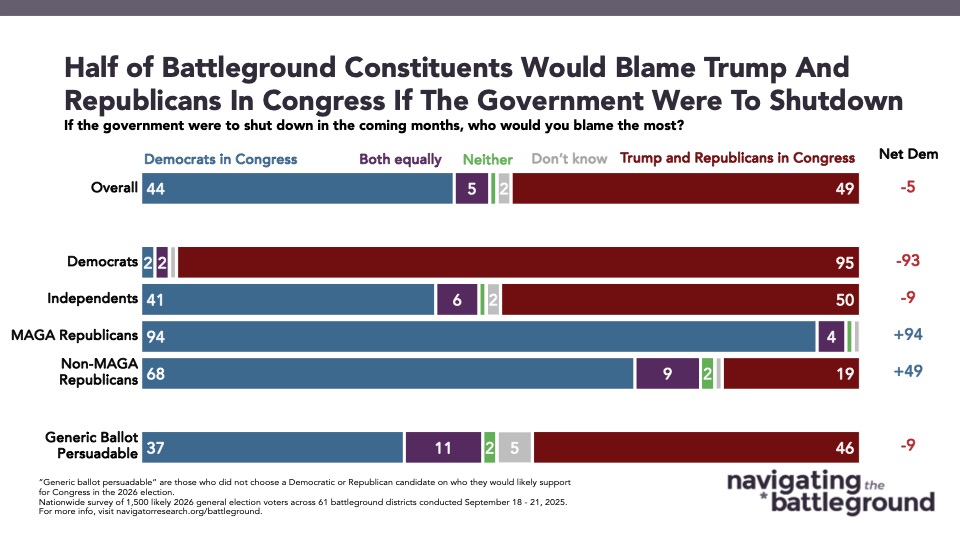
A shutdown would be serious, but many see it as worthwhile to protect people from other bad recent decisions. This included holding the line against funding cuts for health care and ACA tax credits, as well as fighting to remove tariffs. This sentiment persists despite battleground constituents being clear that they believe a shutdown would be “a serious problem for the country” (66 percent) and that it would have a personal impact on them (53 percent).
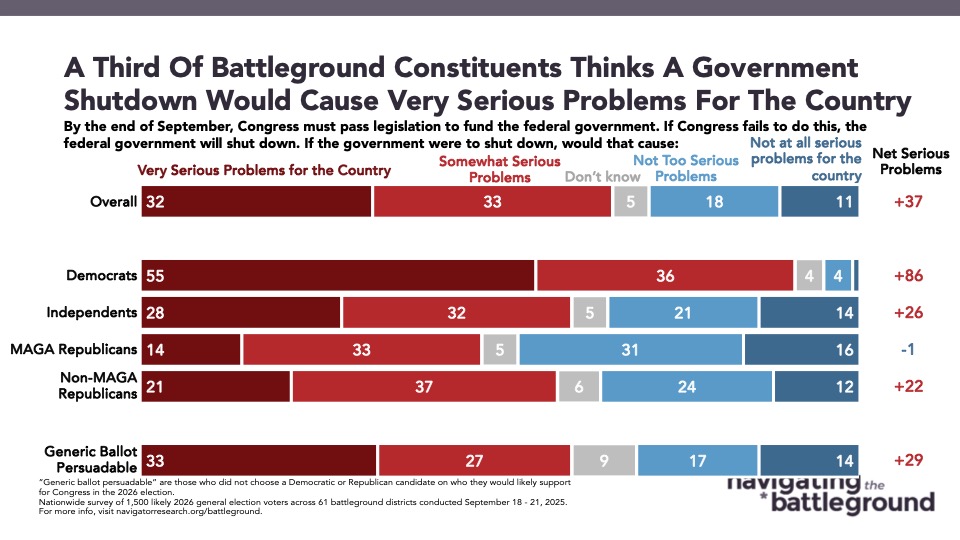
Specifically, protecting health care and opposing tariffs are the top-testing reasons to shut down the government. 49 percent of battleground constituents agreed that “Congress should let the government shut down to hold the line against funding cuts for healthcare programs and keeping tariffs in place,” compared to 34 percent who agreed that “Congress should pass a bill to keep the government open, even if it means funding cuts for healthcare programs and keeping tariffs in place.” Health care and costs evoke the largest pro-shutdown margin, consistent with our other budget priority tests.
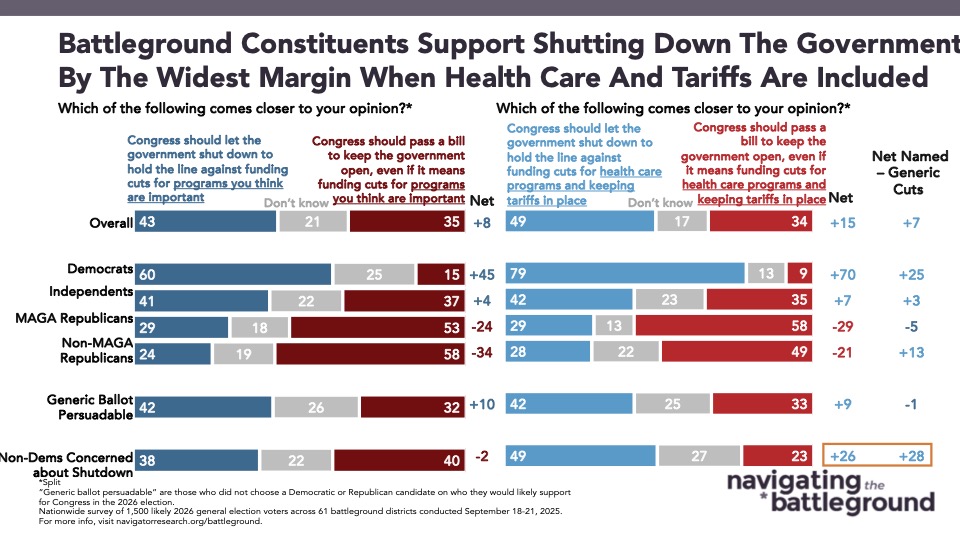
A partisan shutdown debate narrows our advantage. When testing the Republican position that “Republicans in Congress should make sure the government stays open and keep the current budget in place without making concessions” against two Democratic positions, both Democratic frames earned a slight plurality (44 percent and 45 percent) compared to 40 percent support for the Republican statement in both tests.
Our post-messaging test underscored how messaging with partisan queues entrenches blame. Respondents heard two Democratic messages: one emphasizing Democrats’ efforts to work with Republicans, and another taking a harder line blaming Republicans for attacks on Medicaid and higher costs for working families. Even after exposure to both messages, results barely moved. Initially, 44 percent of Americans said they would blame Democrats in Congress for a hypothetical shutdown and 49 percent said they would blame Trump and Republicans. After messaging, those numbers remained essentially unchanged: 45 percent blaming Democrats and 49 percent blaming Trump and Republicans.
